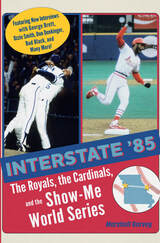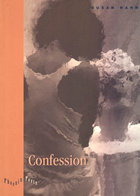
"Phoenix Poets is the most distinguished university press series going."—Alfred Corn
"Compressed, controlled, circumscribed by the artist's discipline, the poems in Susan Hahn's Confession do not spill over; each is like a steadily held cup containing its pain."—Alicia Ostriker
"Hahn's voice is unique and unforgettable . . . . Hahn's self-revelation is so startling, and her details so extraordinary, that she virtually detonates her poems with energy. . . . Plath, Ai, Sexton—Hahn brings to mind those vivid, violent poets, but her voice is clearly her own, strong and without either shrillness or shame."—Patricia Monaghan, Booklist
"In her third book of poems, Confession, Susan Hahn continues to refine her amazing capacity to disquiet, disgust and fascinate. This may not sound like a recommendation, but it is. . . . The precision of Hahn's language stands out even more clearly when compared to the looser, baggier free verse that dominates so much contemporary poetry."—Maureen McLane, Chicago Tribune
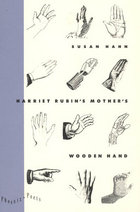
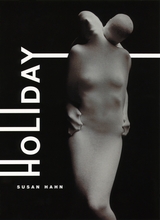
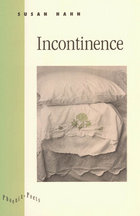
"Stitching together tropes about writing and technique, as well as hunting and the loss of sexual innocence, [Hahn] marks and exploits the body with surgical precision in order to explore the peripheries of the personal lyric. She wants to take poetry to the most tangible and sensual extremes. It's often uncomfortable, and yet as often results in a poetry of generous, piercing honesty, as if (to rewrite Bradford) it's by the body we are 'plainly told.'"—David Baker, Poetry
"Incontinence has an enormous, almost epic sweep."—Chicago Sun-Times
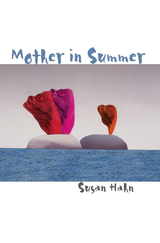
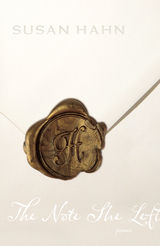
Hahn’s new collection wrestles with the elemental and enduring challenges of the human condition: What can we use from our spiritual heritage? How should we find relief? How, after it all, do we live? The poems are presented as a letter to the world from a woman preparing to leave it. In four sections—“The Bells,” “The Crosses,” “Widdershins,” and “Afterwor(l)d”—she contrasts the hope against the dark that is embodied by an amulet or cross with the abased resignation of torture, failed prayers, and witchcraft. Though Hahn’s vision is a dark one, its dramatic emotional depth speaks to a human power that, though damaged, can still engage.
from The Crosses (V)
Cross my fingers, cross my heart,
arms extended, legs together, not apart,
I make of myself a cross.
In my pockets bright blue beads,
small clay gods, scarabs,
four-leaf clovers, bejewelled mezuzahs.
In my hat cockleshells
to exorcize the demons,
to keep hidden the seventh chakra,
the tonsure, the bald compulsion.
Cross my fingers, cross my heart,
arms extended, legs together, not apart.
In my ears little bells of confusion,
to frighten away eyes of the evil.
On my breast a foul sachet
to repel the lick of the Devil.
Cross my fingers, cross my heart.
In my window a glass witch ball
to guard against the shatter
from intruders.
Cross my fingers.

It’s all about disappearance.
About a bird in a cage
with a mirror, a simple twist
on the handle at the side
that makes it come and go
at the magician’s insistence.
It’s all about innocence.
It’s all about acceptance.
It’s all about compliance.
It’s all about deference.
It’s all about silence.
It’s all about disappearance.
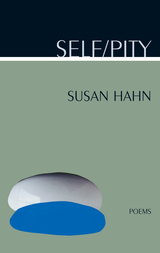
As with her previous collections, the poems in Self/Pity can be read as a cohesive whole.
From the simple prayer "To Jacob Four Months In The Womb" to the complex territory of the poem sequence "The Pornography of Pity," in which Mother Goose, the Marquis de Sade, Godot, Lewis Carroll's Alice, The Cat and the Fiddle, Zeus, and many others are called upon, Hahn creates a tour-de-force exploration of the book's central themes.
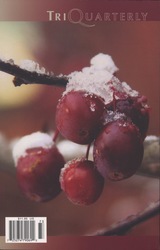
Charles Baxter
David H. Lynn
Marie Myung-Ok Lee
Barbara Hamby
Mary Morris
Debora Greger
Reginald Shepherd
Amit Majmudar
Page Hill Starzinger
Ricardo Pau-Llosa
Julianna Baggott
G.E. Murray
Patrice de La Tour du Pin--translated from the French by Jennifer Grotz
R.T. Smith
Rebecca Rasmussen
Steven A. Dabrowski
Celeste Ng
Nancy Eimers
Chard deNiord
Laura Kasischke
Derek Mong
Judith Valente
Debra Nystrom
John J. Clayton
Erika Dreifus
David Wagoner
Charlie Smith
Pimone Triplett
Megan Harlan
Jonathan Fink
Corey Marks
Anne Harding Woodwortth
READERS
Browse our collection.
PUBLISHERS
See BiblioVault's publisher services.
STUDENT SERVICES
Files for college accessibility offices.
UChicago Accessibility Resources
home | accessibility | search | about | contact us
BiblioVault ® 2001 - 2025
The University of Chicago Press





